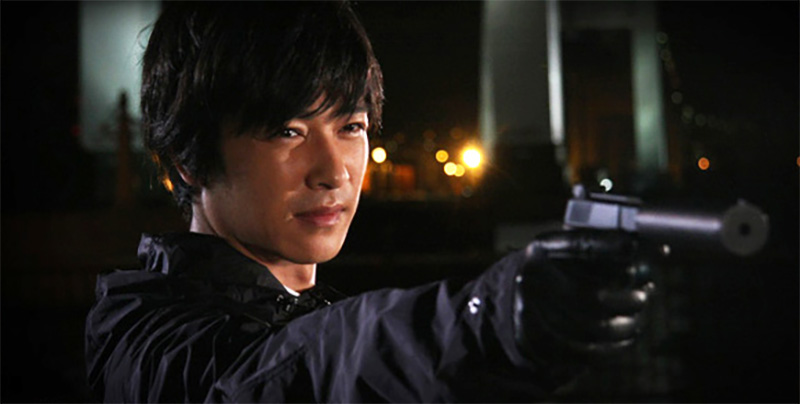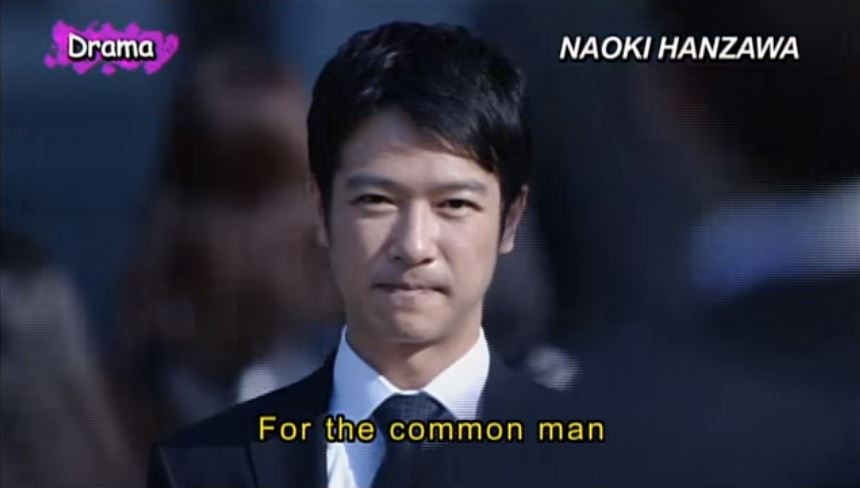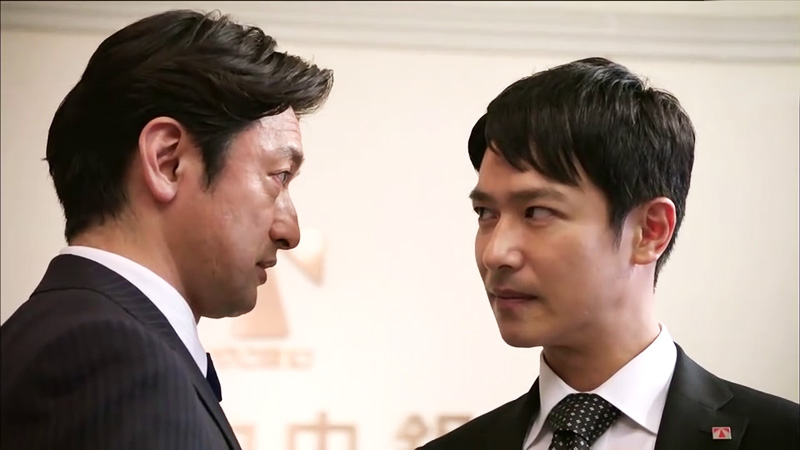Hanzawa Naoki
Episode 5
Review by David Cirone
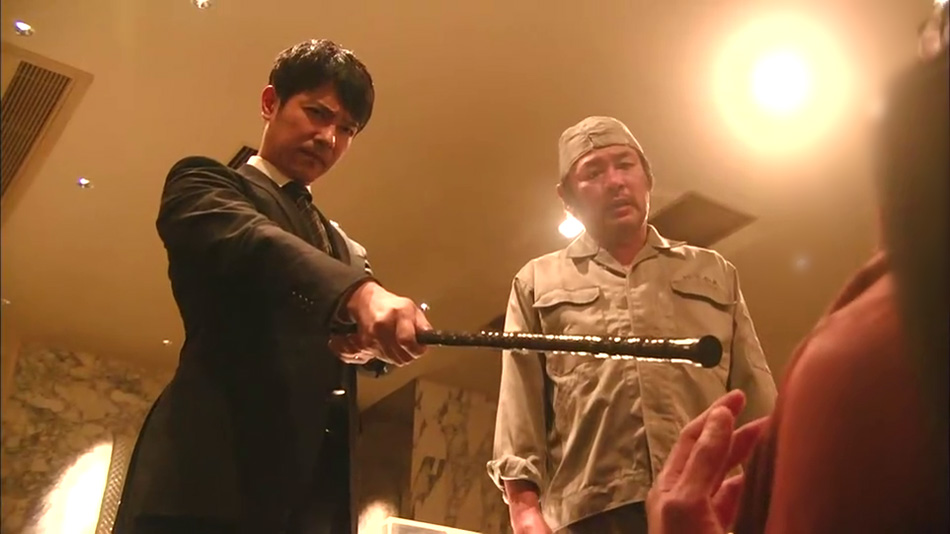
Tensions rise at home as Hanzawa (Masato Sakai) faces an impending transfer overseas that will doom his career as a banker. Overlooking bright lights of Osaka, Hanzawa confesses the truth of his father’s suicide to his wife Hana (Aya Ueto) and reveals that he blames the very bank he now serves.
We flashback to his childhood to see the heartbreaking discovery of his father’s body at the very moment when their business was saved by a small local credit union. Hanzawa still carries that fateful memory, but claims that his desire to seek revenge has shifted to a dream of himself as a banker who can give others hope.
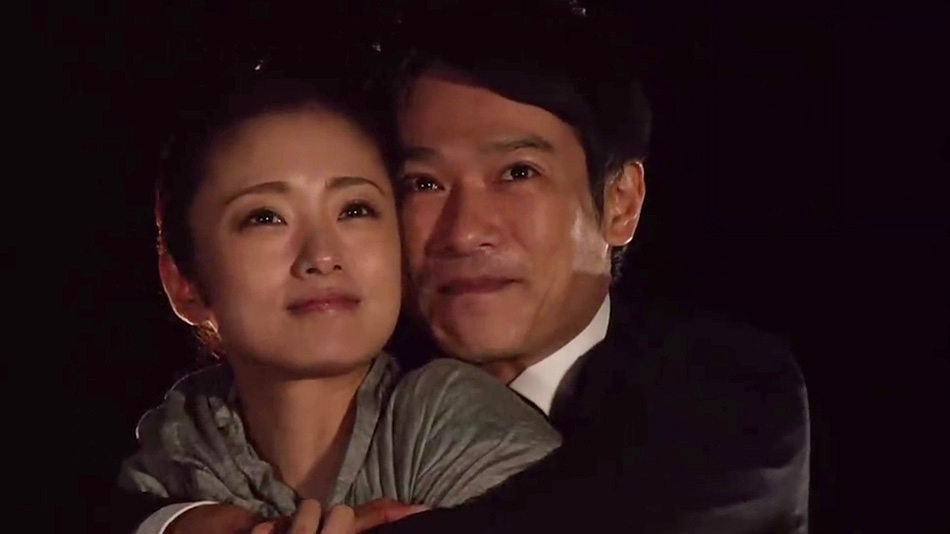
The next day, Tax Inspector Kurosaki (Ainosuke Kataoka) raids Higashida’s hideout with a warrant to seize his financial papers. Desperate to avoid charges, Higashida (Takashi Ukaji) grabs his hidden stash of papers and thrusts them into Miki’s bag, instructing her to run away. She runs straight to the back seat of Kurasaki’s waiting car, handing him the pile of documents.
At the bank, Asano (Kanji Ishimaru) is gloating in his apparent victory, expecting Hanzawa’s transfer orders to come in by the end of the day. Insulting, pompous, and abusive, he’s letting his evil side out without any care of retribution. He even trashes Hanzawa’s carefully-prepared proposal for Miki’s salon.
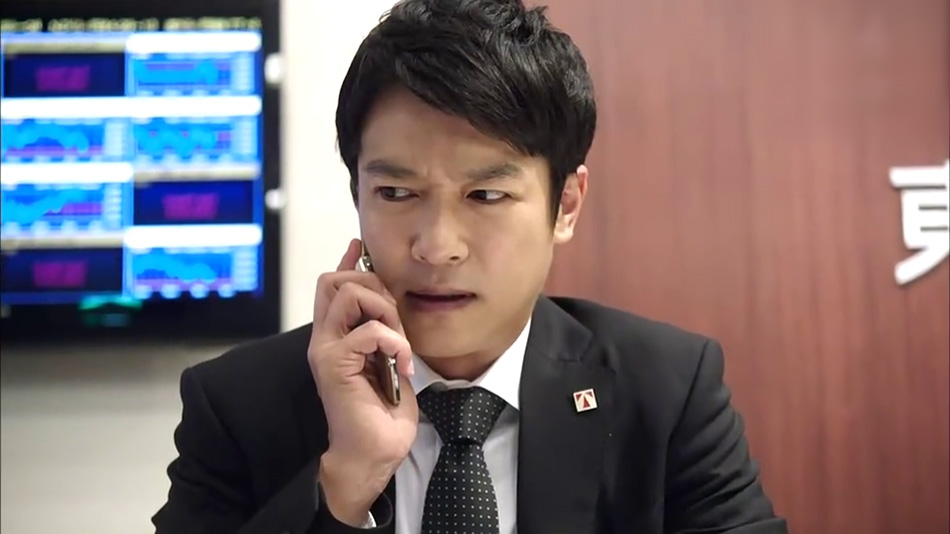
Fretting every second, Hanzawa racks his brain for a solution. Messenger arrives with a urgent package — Miki’s pulled a double cross and switched out the papers, sending them to Hanzawa instead. it’s all part of the plan to let Miki keep her deal with the tax bureau and still give Hanzawa the evidence he needs to incriminate Asano and Higashida.
Hanzawa turns up the heat on Asano, sending him the details via anonymous text and explaining that Asano has two choices: confess everything to his bank colleagues (including Hanzawa) or go to jail and watch his family suffer under media scrutiny. Takeshita prefers a more direct approach and crashes Higashida’s party at the hostess club to publicly embarrass him. When Higashida becomes enraged and attacks Hanzawa, he gets the kendo beat-down he escaped earlier in the season.
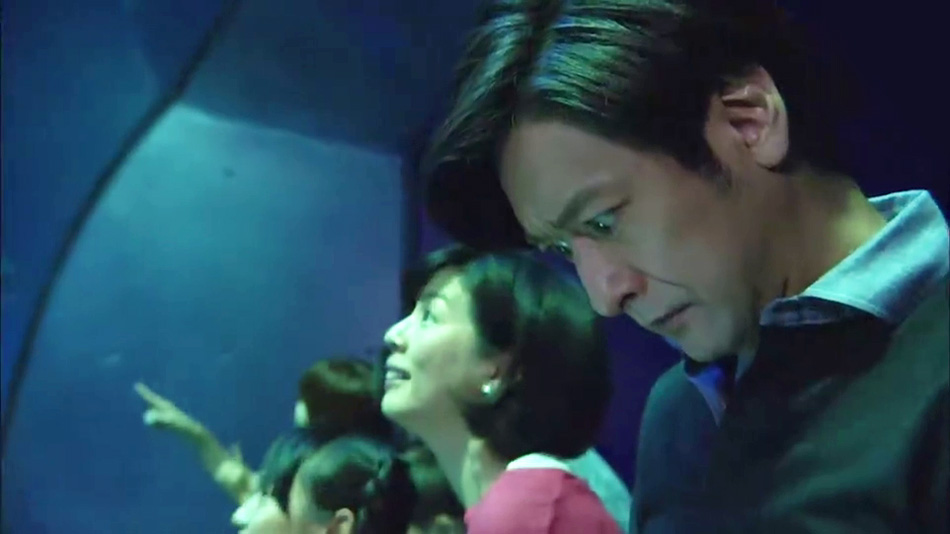
After successfully recovering the 500 million yen, Hanzawa escapes his transfer sentence. Ready for the final confrontation with Asano, Hanzawa enter his supervisor’s office to twist the screws one last time before calling the police. Their tense standoff is interrupted by Asano’s wife Rie (Hiroko Nakajima), who arrives at the office under the pretense of bringing gifts for the staff. But she’s really there to plead with Hanzawa to have mercy on her husband. She doubtlessly heard the gossip about the conflict between the two men and put two-and-two together. It’s a really moving and emotional scene, full of unspoken subtext, and perfectly crafted by the director as a counterbalance to the dark mood that hung over the whole episode.
Hanzawa finally gets his long-overdue apology and cuts a deal: he won’t press charges, but he and his team will get promotions of their choice. Hanzawa relocates to the central office in Tokyo, and we learn that Chief Owada is the banker who broke Hanzawa’s family apart years ago with his heartless refusal to help.
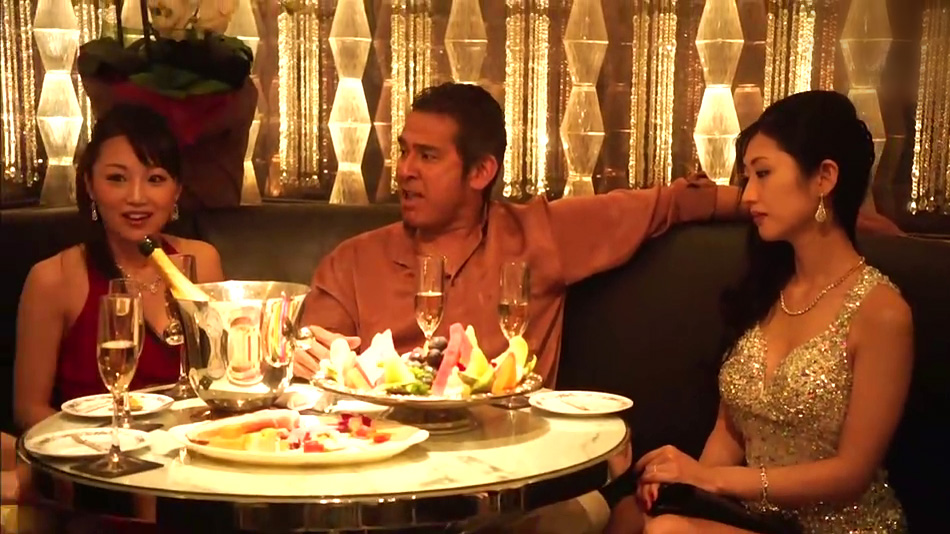
MISTER SADISTIC
Is Hanzawa telling Hana a half-truth about putting revenge in the rear-view mirror? Once he has the evidence to absolve himself and turn Asano in, he could put a quick end to the whole affair, but instead he announces his intent to make them suffer. And when he’s got Asano on the ropes in the climactic scene, he’s clearly enjoying the pain of Asano’s defeat. Hana makes it clear — one way or another, someone’s family is going to suffer.
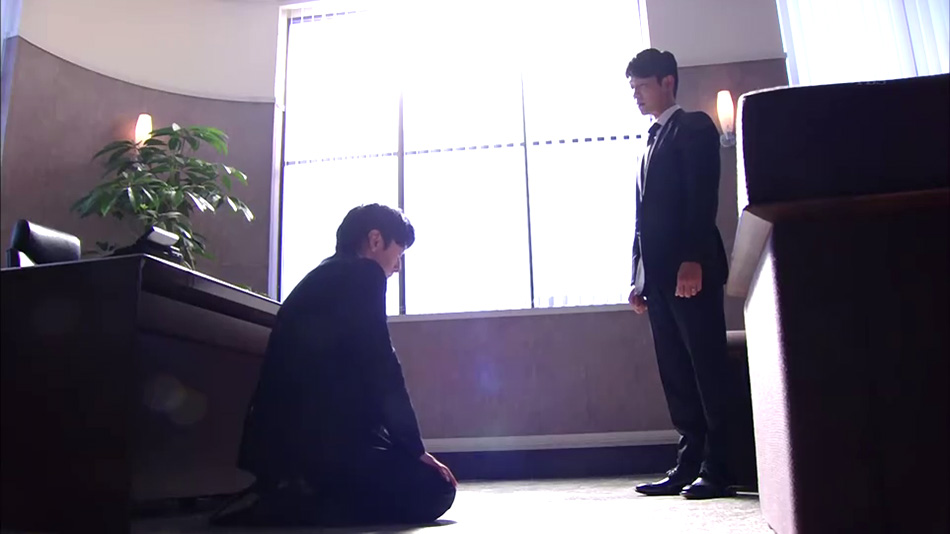
PEOPLE ARE PEOPLE
Asano’s time with his children and his sweet exchange with his daughter at the aquarium shows he’s a good dad. His wife knows something’s cooking, but even she has learned to love him. When Asano reveals his reasons for making shadowy deals to save his family’s future, he doesn’t exactly get a free pass (Hanzawa quickly reminds him that he’s selfishly made the families of others suffer instead), but it’s a well-played scene that gives Ishimaru a chance to make his character more than just a mustache-twirling villain.
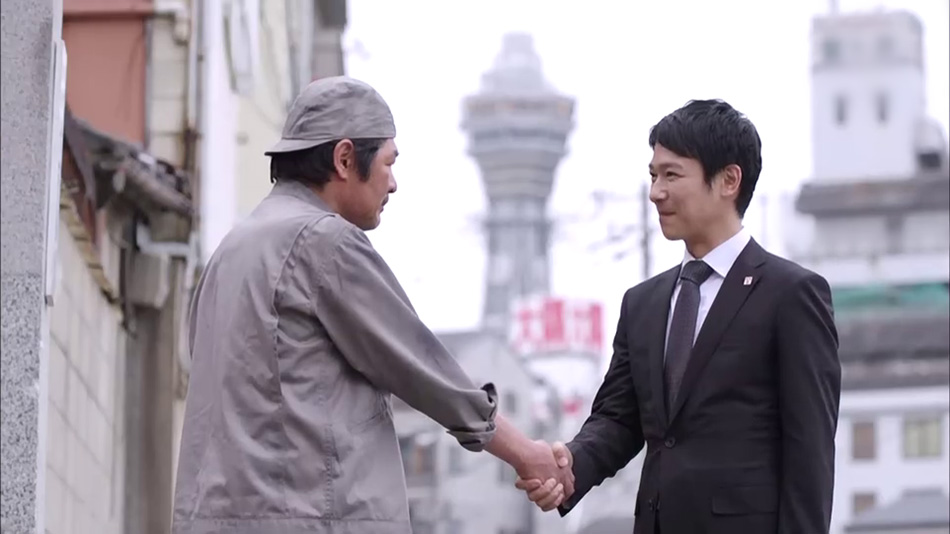
THE REAL THING
Owada expresses regret at having to transfer Hanzawa out of the country, lamenting that the young banker might have proved a valuable high-level player if he could have found a way out of trouble. Well, be careful what you wish for, Owada — the last-minute reveal that Owada was the banker who showed no mercy to Hanzawa’s father sets up an even bigger conflict for the second half of the season.

